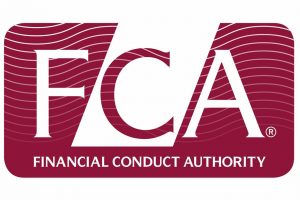Join Our Telegram channel to stay up to date on breaking news coverage
The Financial Conduct Authority (FCA), the U.K.’s financial regulator, has announced that it will be stepping up its oversight of companies dabbling in cryptocurrencies.
In an announcement published yesterday, the financial watchdog confirmed that it will be monitoring the Anti-Money Laundering (AML) and Counter-Terrorist Financing (CTF) activities of companies that conduct crypto-related services from now on. Thus, all companies in the country- whether indigenous or foreign- which will like to conduct crypto-related services will need to maintain the same compliance standards.
Strict Requirements for Interested Companies
Apart from that, the FCA explained some of the AML and CTF requirements that these companies will need to uphold, including but not limited to risk assessment and identification, the conduction of customer due diligence, the development of checks to limit AML and CTF risks, and a host of others.
The announcement added, “We will proactively supervise firms’ compliance with the new regulations, and will take swift action where firms fall short of desired standards and cause risks to market integrity.”
The announcement is continuing what has been a confusing relationship between the British financial regulator and its cryptocurrency space so far. Like a lot of countries in the developed world, there was a lot of hope for clear regulations to be enacted in the United Kingdom last year. Sadly, however, these hopes were dashed as nothing tangible materialized.
FCA Still on Pace to Shake the Industry Up
As a matter of fact, things almost looked as though they’d be taking a turn for the worse in the country. In its UK Cryptoasset Taskforce Final Report for 2018, the FCA has made a commitment to publish a consultation paper that will outline its pathway to banning crypto derivatives, including but not limited to Exchange Traded Notes and Contracts for Difference.
At the time, the agency explained that it didn’t believe the value and risks associated with these products could be easily assessed by non-professional traders, as factors such as the difficulty in determining the value of an asset and the prevalence of market abusers stood in the way of clear asset value determination. It also claimed that the decision could save retail investors between £267 million and £451 million per year.
The announcement put the entire industry on edge, as many believed that if the FCA could succeed in banning derivatives, it would only be a matter of time before it moved into the real asset space and either instituted strict controls or banned them outright as well.
Last October, John Glen, the Economic Secretary to the Treasury, took several questions about the U.K.’s approach to providing regulatory clearance for crypto assets, and confirmed that as regards derivatives, the decision had been left to the hands of the FCA. As he explained, the agency operated autonomously from the government, and will be taking the ultimate decision on the proposed ban.
Join Our Telegram channel to stay up to date on breaking news coverage


